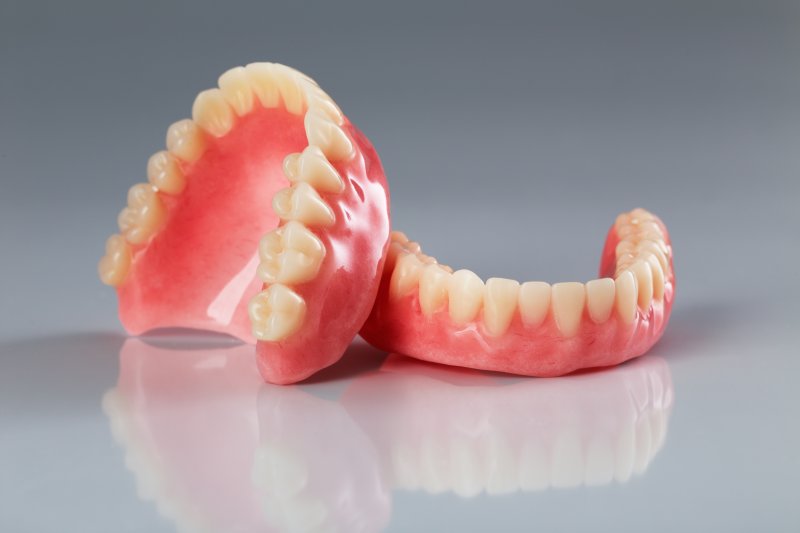
Dentures have come a long way. The way they’re made, the materials used to create them, and their lifespan all just a few of the many aspects that are drastically different than the prosthetics created by our early ancestors. Whether you wear dentures or not, you might find it interesting to learn how dentures have changed over time to become what they are today.
From Then to Now: The Changing Look of Dentures
Dating back to 700 B.C., ancient civilizations throughout northern Italy used human and/or animal teeth along with gold wire to construct the first set of dentures. Tribes in Mexico used wolf teeth to replace those that were missing, and ancient Mayans resorted to using carved stone, seashells, and bone, all of which fused with the jawbone.
Researchers then discovered that wooden dentures were crafted during the 16th century in Japan and became the leading style until the 19th century. And although it is believed that these were the kind of false teeth that George Washington wore, they were actually made out of ivory and consisted of human, horse, and donkey teeth.
In the late 1700s, porcelain dentures were discovered by a British physician, but their appearance and durability were lacking, so the teeth were later mounted onto gold plates using various instruments to help them function more naturally.
However, porcelain was considered very expensive and inaccessible to many individuals suffering from tooth loss. As a result, vulcanite was created and found to be a more comfortable and suitable option because of how it shaped an individual’s gums.
If you look at the dentures of today, you’ll notice that porcelain and vulcanite are no longer the leading materials used to craft these prosthetics. While some dentists still use porcelain, acrylic is now the most popular option.
How Dentures Benefit Patients Today
Now that dentists are using a more reliable, sustainable, and comfortable material to craft dentures, patients are reaping the benefits of these prosthetics. Most obviously, acrylic dentures make it possible for individuals to live with an artificial smile that looks completely natural. Not only does the base blend in with existing gum tissue, but teeth mimic the look of regular tooth enamel, creating a smile that looks seamless and beautiful.
Acrylic is also highly durable, so it can withstand chewing and eating, which is imperative for patients who have been without a nutrient-rich diet. Being able to consume food properly helps to improve nutrition and overall health.
Also, the dentures used today last longer (up to a decade) as long as patients commit to taking proper care of them. This cuts down on the number of replacements that are required. However, many individuals are making the switch to more permanent dentures – those held into place with dental implants.
Instead of resting solely on the gums and replacing only the visible portions of teeth, implant dentures also restore the roots to ensure continuous stimulation to prevent jawbone resorption.
Yes, dentures have changed over the years, and those used today are much more reliable than those created in past decades. It is just one of the reasons why they continue to serve as a reliable solution for anyone suffering from tooth loss.
About Grand Dental – Naperville
At Grand Dental – Naperville, traditional prosthetics remain a popular option among individuals suffering from tooth loss. They’ve changed over the years, now offering greater aesthetics and function, which is why our team of dental experts is pleased to offer full and partial dentures to patients suffering from tooth loss. If you or a loved one is interested in learning more about how dentures can improve your life, visit our website or call us at (630) 576-9970 to learn how we can help.
